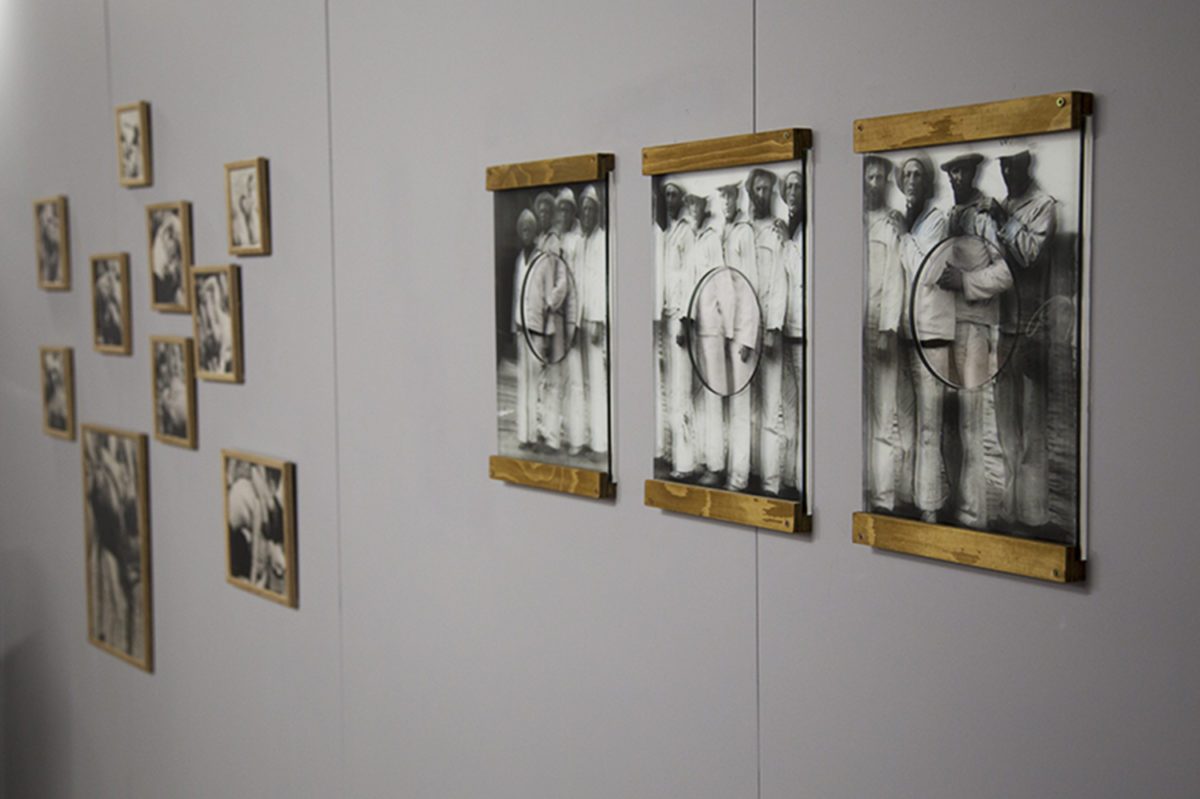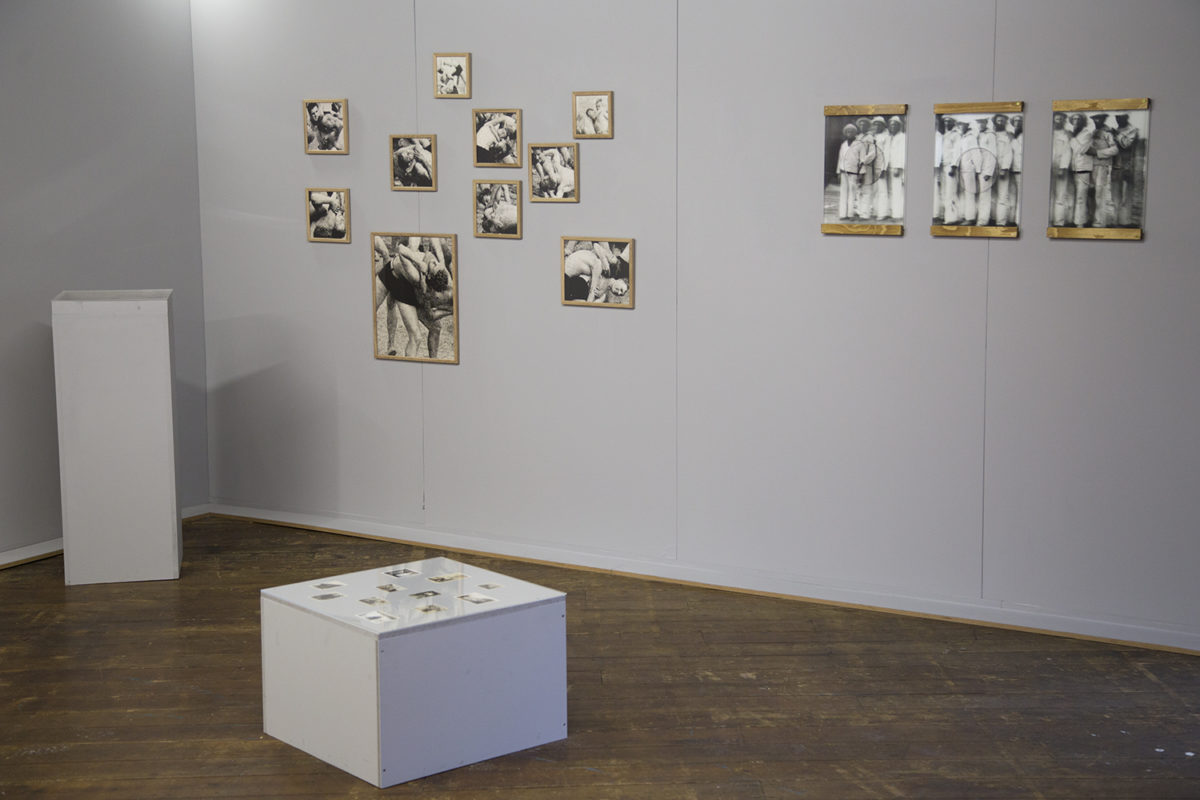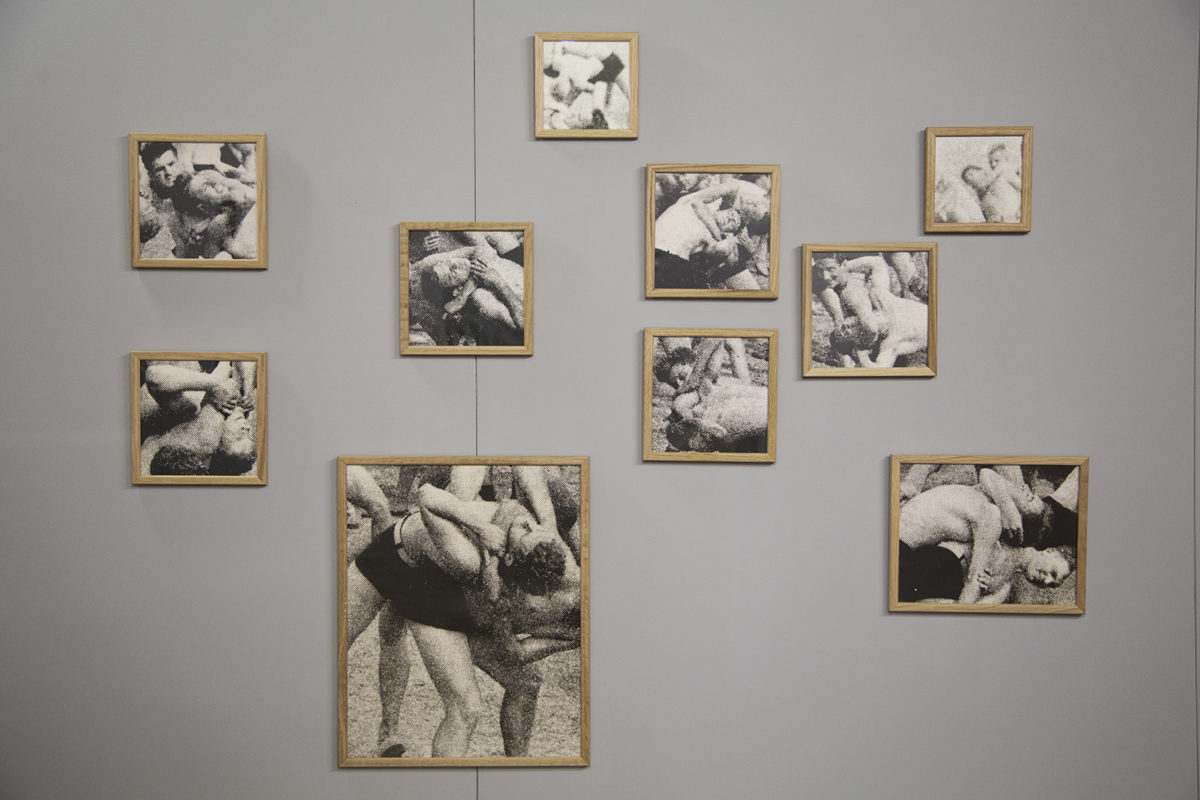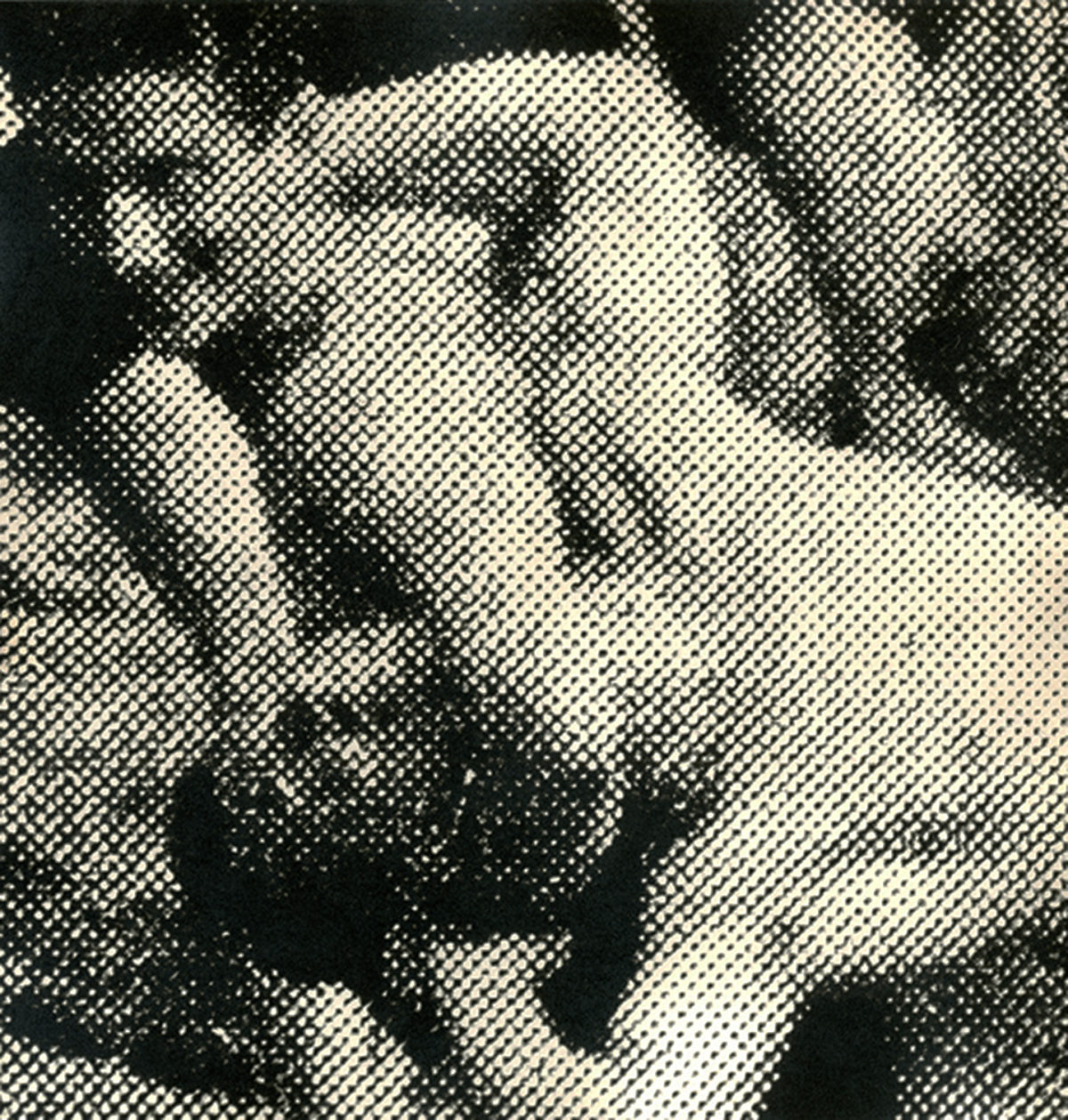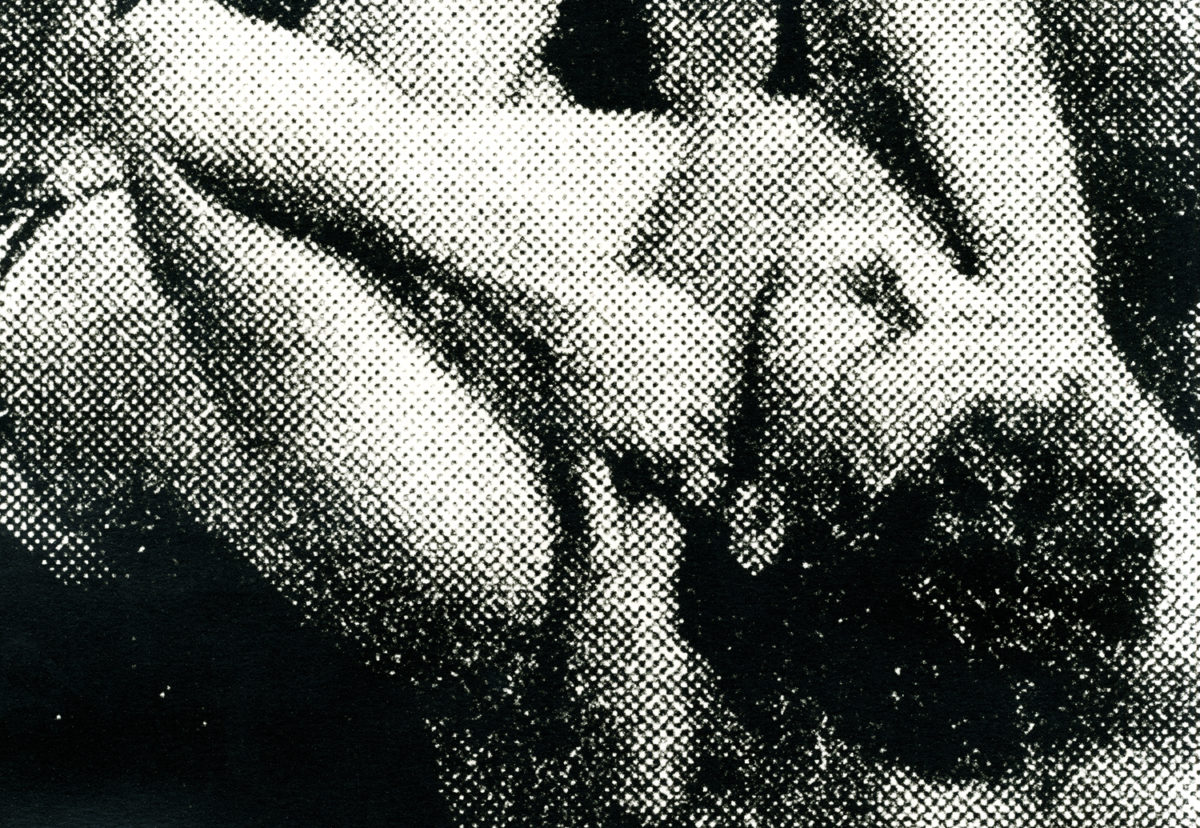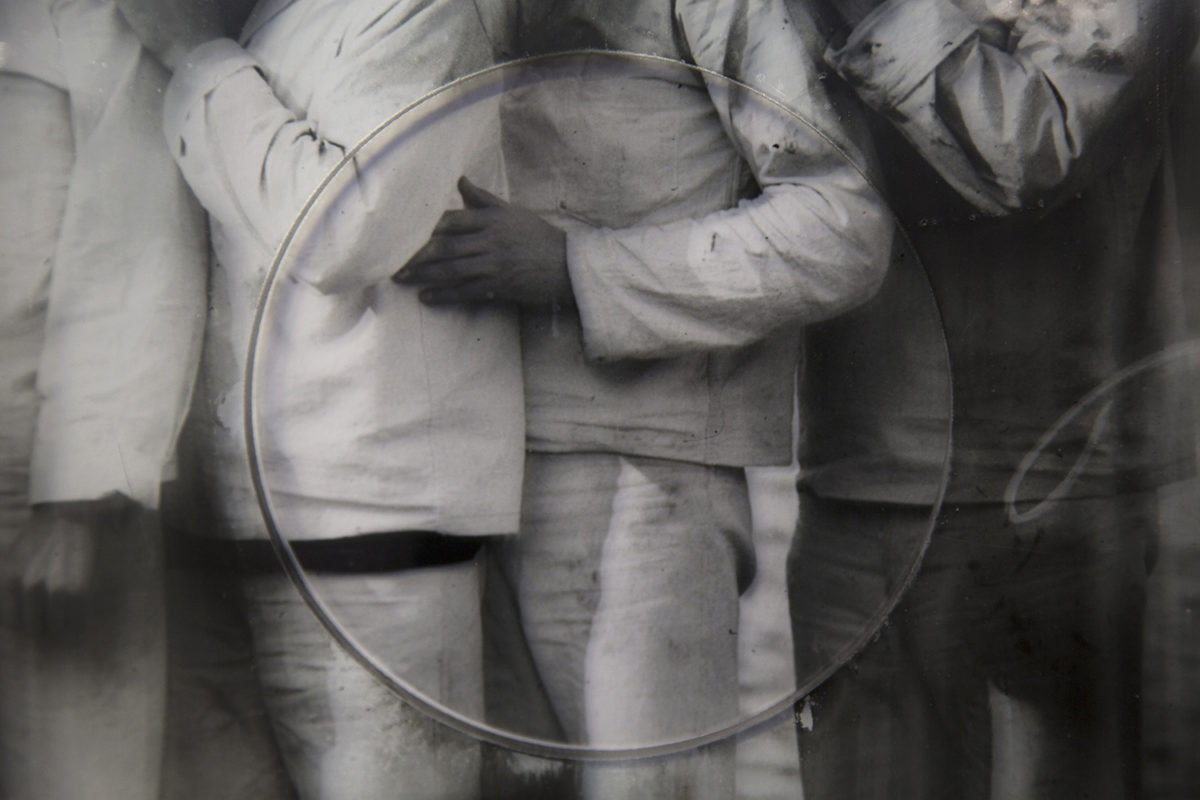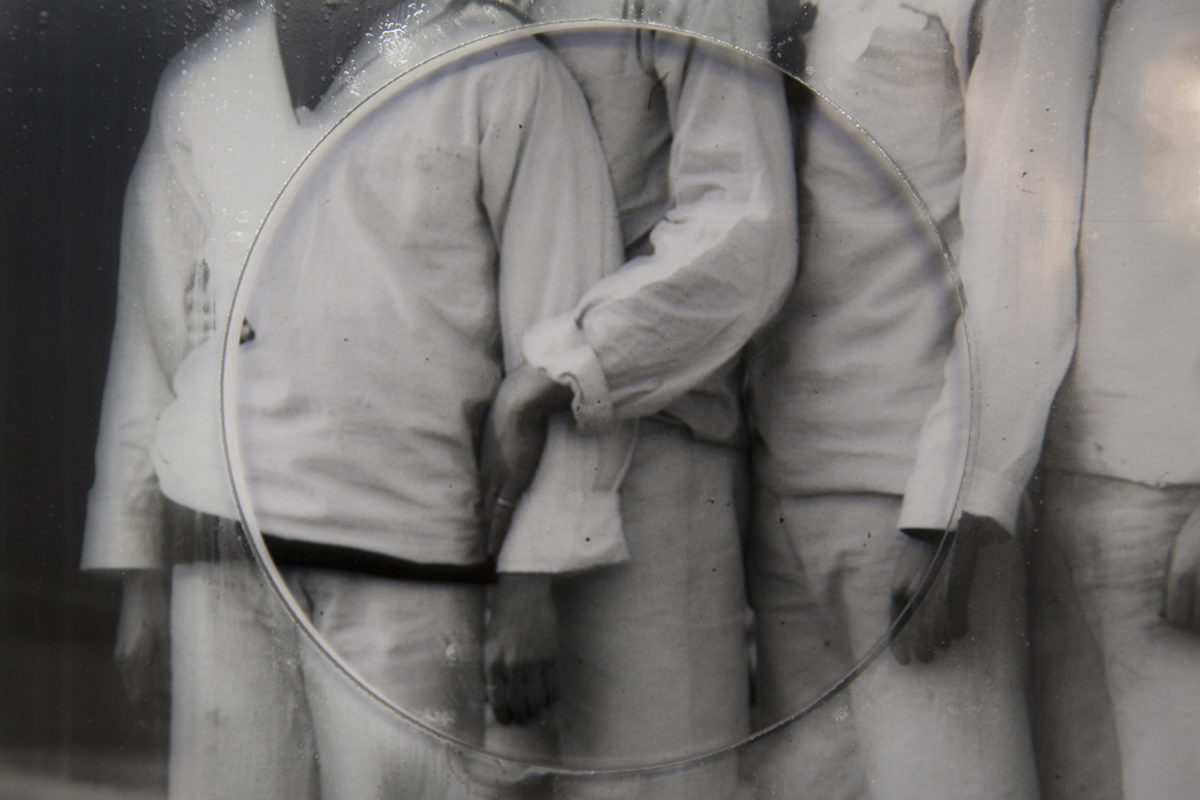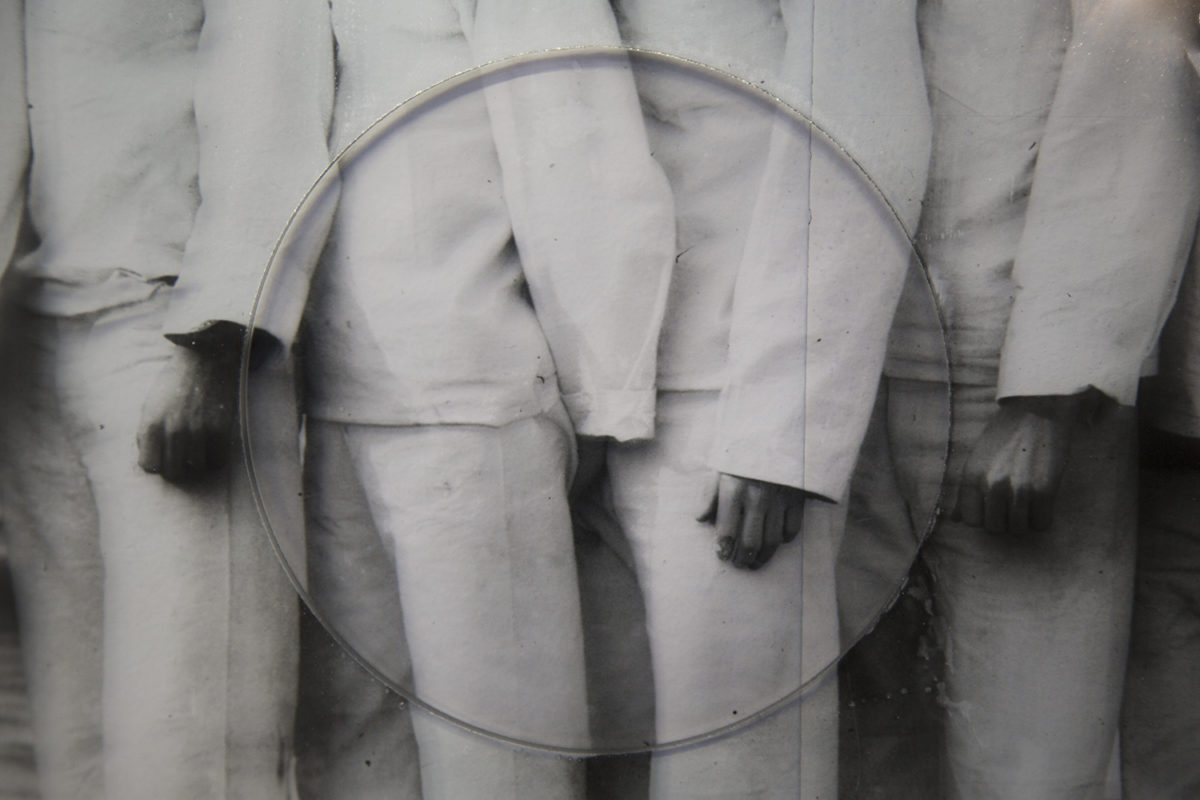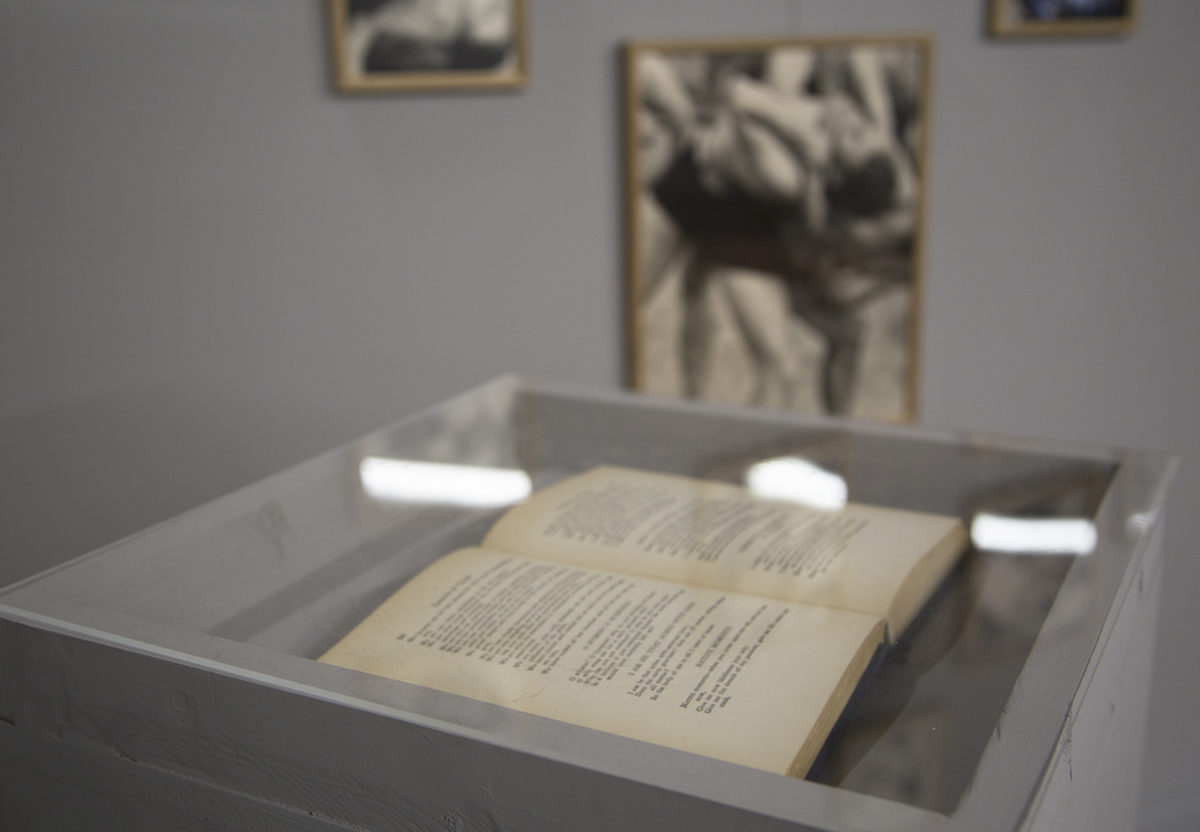Davide Meneghello, 2016 MA Photography graduate from London College of Communication, reflects on the hidden past of homoerotic imagery in photographic archives in his series Again He Holds Me by the Hand.
The series Again He Holds Me by the Hand poses a reflection on the presence and absence of homosocial intimacy and homoerotic gestures in photographic archives, as testimony, and maybe involuntary records, of non-normative ways of feeling and desiring, in a prohibitionist past. The project offers an insight into the edge between hidden and unveiled, evidence and potentiality which has emerged, mediated through my queer gaze, along the selection of photographic documents from the archive sources.
This performance of selection has composed the foundational research of the project, which, after the identification of a series, has progressively focused on two photographs, one coming from the Library of Congress and the second one from the Florida Archives, which have been processed and transformed in the main body of work of the installation.

The intervention on these appropriated documents has been of a physical nature, through the fragmentation of the photograph or the detachment of one of its parts, and through the employment of different materials; all strategies addressed to queering them, placing the homoerotic feature in evidence for the viewer.

Doing so, re-contextualizing and altering the original photographs in the exhibition context, I was interested in how the relation of the sign-object inscribed onto each photographic surface can acquire different connotations from its original function; promoting, through a process of decodification, a shifting content of the photographic message indexically inscribed on them and a new historical interpretation.
The exhibition installation features a vitrine displaying a collection of found photographs, which portray scenes of same sex-intimacy, which are left untouched. Next to it, in a separate plinth, is Walt Whitman’s debated Once I Pass’d Through a Populous City. The poem was rediscovered in Whitman’s manuscript after his death with a different gender pronoun of the one published, and comes back corrected as title of the work.

